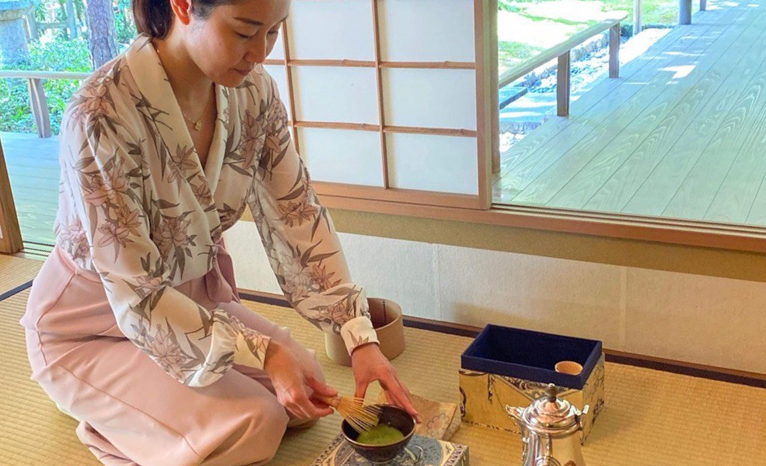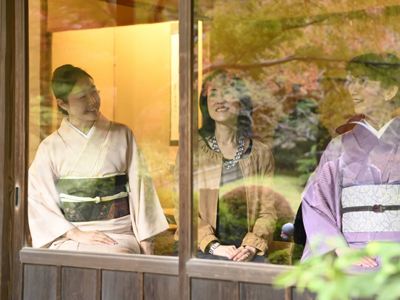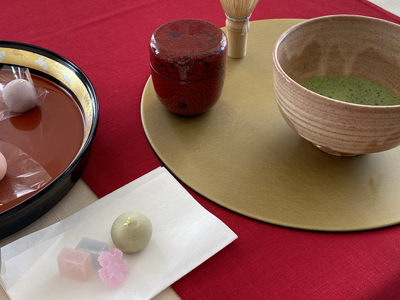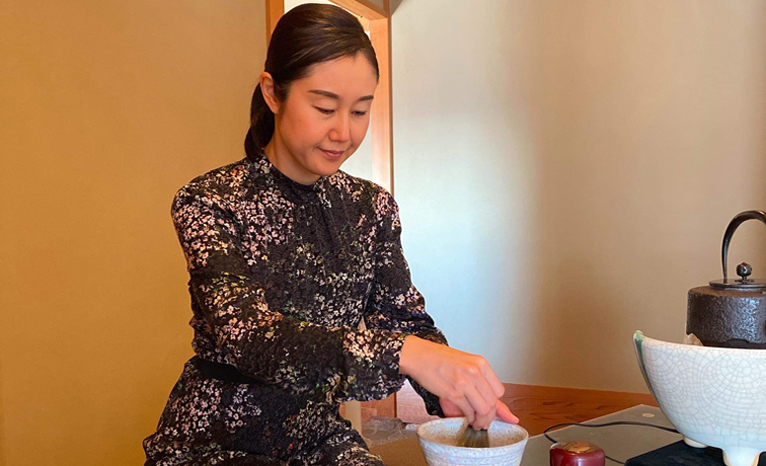An everyday occurrence

The basic spirit of the tea ceremony is expressed in "Wa-Kei-Sei-Jaku", which includes a traditional Japanese culture that seeks to develop humanity through the tea ceremony, the Japanese spiritual culture and aesthetic sense that are called "Wabi-Sabi" and the concept of "Ichigo-ichie" means to cherish the moment and to give the utmost hospitality to others.
By learning about the tea ceremony, you will be able to enjoy the traditional Japanese culture, the Japanese spirit, and the sense of beauty.
The basic spirit of the tea ceremony is expressed in "Wa-Kei-Sei-Jaku", which includes a traditional Japanese culture that seeks to develop humanity through the tea ceremony, the Japanese spiritual culture and aesthetic sense that are called "Wabi-Sabi" and the concept of "Ichigo-ichie" means to cherish the moment and to give the utmost hospitality to others.
By learning about the tea ceremony, you will be able to enjoy the traditional Japanese culture, the Japanese spirit, and the sense of beauty.

Sen no Rikyu taught the concept of ”Ichigo-ichie", which means our encounter with a guest is once a in lifetime and to treat him or her with all our heart that even if you have a tea ceremony with the same person again, the last time you had a tea ceremony is different from this time.
As the word spread not only in the world of the tea ceremony but also in the world in general, the word "kai" came to mean an opportunity or a meeting, a meeting that takes place only once in a lifetime.
It refers to the spirit of the tea ceremony which consists the following four elements
Wa - Harmony
Kei - Respect
Sei - Purity
Jaku - Tranquility
The host who makes the tea and the guest who receives the tea fully open and soften their hearts, respect each other, and keep not only the spirit of the tea but also the tea utensils, the tea room, and the open space in a clean state, so that they can reach a clear and unconcerned state.

